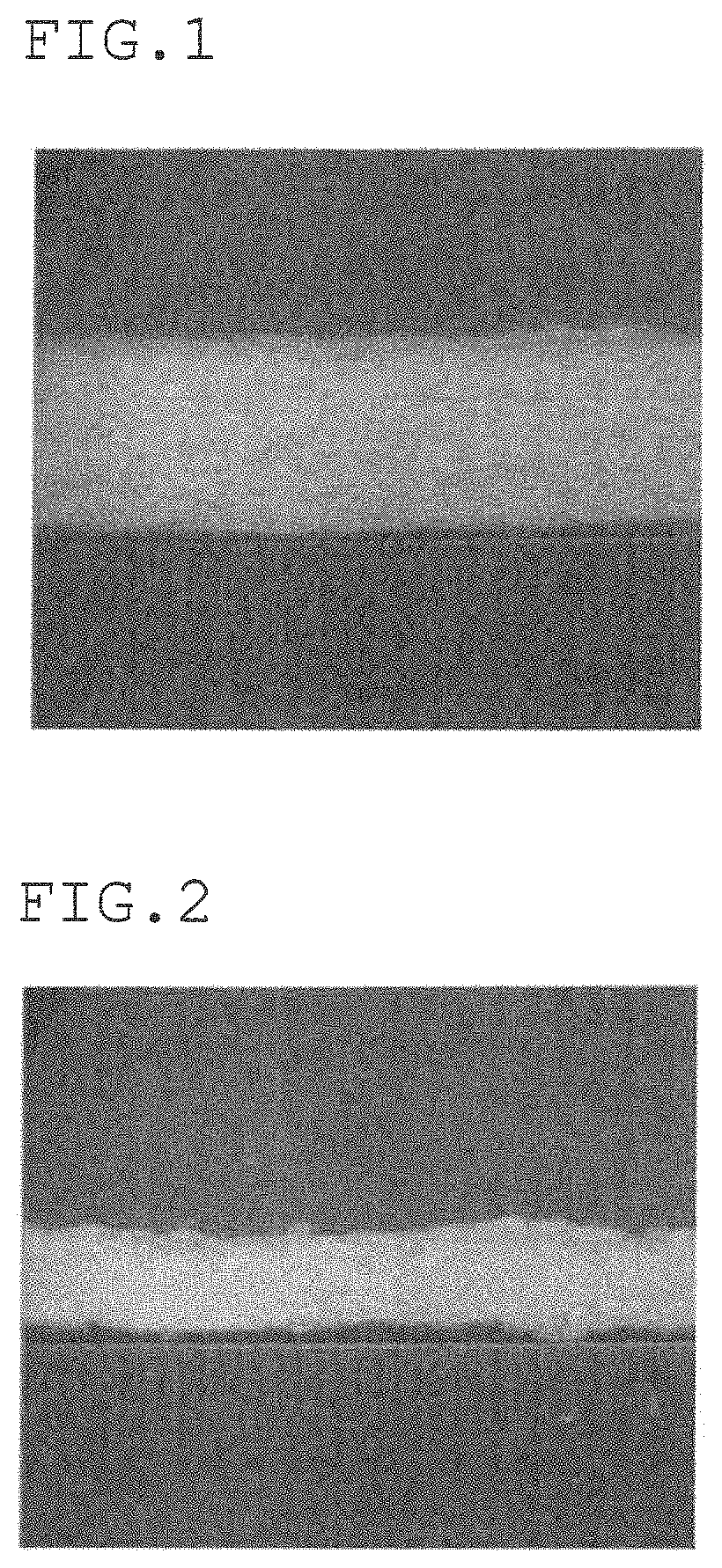Foam
a foamed body and organic fiber technology, applied in the field of foamed body, can solve the problems of poor dispersibility and entanglement properties, low resilience, and use of asbestos fibers, and achieve the effect of excellent deformation characteristics
- Summary
- Abstract
- Description
- Claims
- Application Information
AI Technical Summary
Benefits of technology
Problems solved by technology
Method used
Image
Examples
example 1
[0059]The micro glass fibers (average fiber diameter: 0.4 μm) were treated by adjusting the zeta potential of the fiber surface to be −55 my by dispersing them in aqueous ammonia of pH 10 such that the concentration thereof became 0.5 wt %. Subsequently, 0.5 parts by weight (in terms of solid matter of surfactant) of a cationic surfactant (lauryltrimethylammonium chloride (trade name; QUARTAMIN 24P, manufactured by Kao Corporation)) was added relative to 100 parts by weight of the fiber, followed by mixing and stirring. At this time, air was incorporated to allow the dispersion to foam. The thus obtained wet foamed body was dried and treated at 450° C. for 1 hour in an electric furnace to remove the surfactant adhering to the foamed body. Next, a coupling agent was imparted. As a coupling agent, methyltriethoxysilane (trade name: KBE-13, manufactured by Shin-Etsu Chemical Co., Ltd.) was used. A silane coupling agent was placed in a sealed container and heated to about 160° C. to all...
example 2
[0069]Ceramic fibers (alumina about 50 wt %, silica about 50 wt %) (average fiber diameter: 2.0 μm) were treated by adjusting the zeta potential of the fiber surface to be −32 my by dispersing them in aqueous ammonia of pH 10 such that the concentration thereof became 2 wt %. Subsequently, 0.5 parts by weight (in terms of solid matter of surfactant) of a cationic surfactant (lauryltrimethylammonium chloride (trade name: QUARTAMIN 24P, manufactured by Kao Corporation)) was added relative to 100 parts by weight of the fiber, followed by mixing and stirring. At this time, air was incorporated to allow the dispersion to foam. The resulting foamed body was subjected to drying, firing and coupling agent imparting treatment in the same manner as in Example 1. The average circle equivalent diameter of the pore diameter of the foamed body at normal temperature in a non-compression state was about 312 μm. For the resulting foamed body, evaluation was conducted in the same manner as in Example...
example 3
[0070]A foamed body was prepared and evaluated in the same manner as in Example 1, except that an anionic surfactant (sodium laurylbenzenesulfonate (trade name: NEOPEREX G65, manufactured by Kao Corporation)) was used instead of the cationic surfactant. The results are shown in Table 3.
PUM
| Property | Measurement | Unit |
|---|---|---|
| compression ratio | aaaaa | aaaaa |
| compression ratio | aaaaa | aaaaa |
| compressive stress | aaaaa | aaaaa |
Abstract
Description
Claims
Application Information
 Login to View More
Login to View More - R&D
- Intellectual Property
- Life Sciences
- Materials
- Tech Scout
- Unparalleled Data Quality
- Higher Quality Content
- 60% Fewer Hallucinations
Browse by: Latest US Patents, China's latest patents, Technical Efficacy Thesaurus, Application Domain, Technology Topic, Popular Technical Reports.
© 2025 PatSnap. All rights reserved.Legal|Privacy policy|Modern Slavery Act Transparency Statement|Sitemap|About US| Contact US: help@patsnap.com

